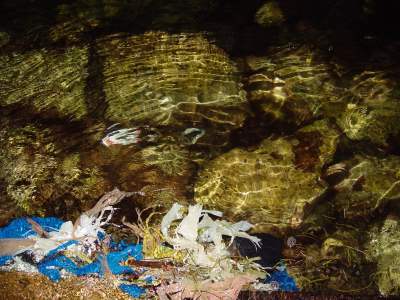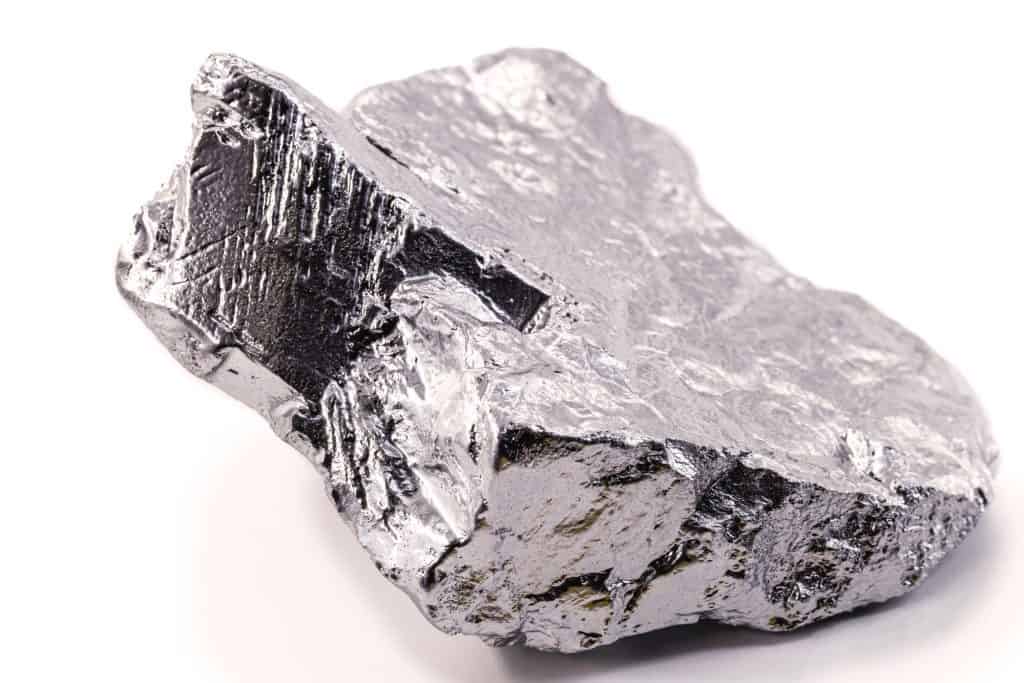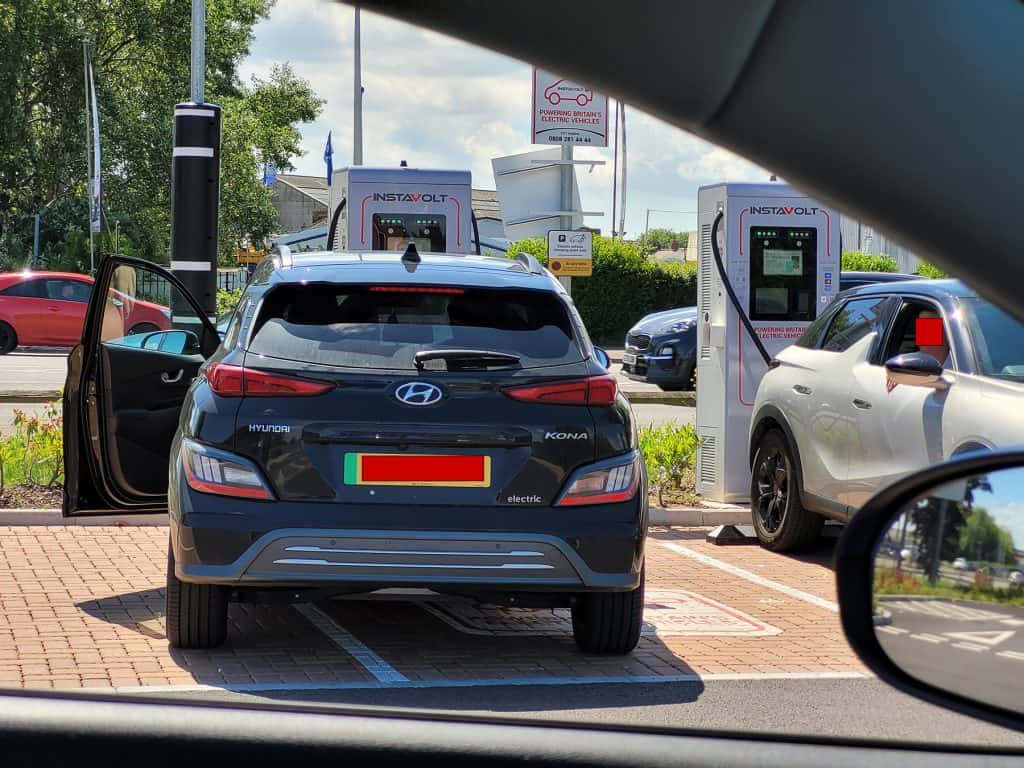The great thing about buying and driving an electric car is that you’re doing your bit for the environment… or are you? Some people claim that electric cars are actually bad for the environment. Is this true? Are you better off with your noisy, gas-guzzling 4×4 instead?
The Basics

When looking at the overall environmental footprint of cars, there are two main components which need to be considered:
- Emissions from building the car (and its components)
- Emissions from powering the car
We’ll look at these 2 components in the following two sections. However there are also some other sources of emissions from the car itself, such as:
- Tire emissions
- Brake emissions
- Road wear-and-tear emissions
These non-exhaust emissions apply to every vehicle: gasoline, hybrid, hydrogen fuel cells, electric. Simple using a vehicle – any vehicle – will lead to tiny little particles coming off the tires, brakes and road. These particles can negatively impact air quality, but they can also stay on the road. Then when it rains, the particles will end up in sewers and ultimately the oceans – having a negative impact on marine life.
This is known as particulate matter pollution and every type of car (whether it’s ‘green’ or not) has a similar environmental impact. The UK’s University of Plymouth carried out research which found that as much as 5-10% of plastic in the sea may come from these vehicular non-exhaust emissions.
So it’s currently a draw between EVs and gas-guzzlers, although it is worth pointing out that – whilst undesirable – this particulate pollution has a much lower environmental impact overall than building and powering/fuelling a car…
1. Emissions from building the electric car

Building a car – or any moderately complex mechanical or electrical machine – will naturally require a lot of different materials, which are then put together using a variety of manufacturing methods. This places two different burdens on the environment:
- Carbon emissions from the manufacturing process
- Harvesting (and depleting) rare metals
And mainly due to their massive battery packs, electric cars are worse than gasoline cars for both measures. Ricardo – the British consultancy group – found that electric cars emit 8.8 tonnes (8,800 kg!) of CO2, compared to 5.6 tonnes (5,600 kg) of CO2 for gasoline cars. Equally, a report by Fraunhofer IBP said that it takes double the energy to produce an EV compared to a conventional car.
Neither of which make for great reading! However the same Ricardo research report also said that despite the high CO2 emissions at the factory, electric cars do produce less CO2 emissions throughout their entire lifecycle (i.e. including the environmental cost of generating the electric for the EV): around 5 tonnes (5,000 kg) less CO2 overall.
In addition to CO2 emissions, there’s also the matter of digging up loads of rare metals for use in electric cars. For example, lithium and cobalt (used in the battery packs) are in short supply so mining these en masse will deplete their short supply even further. Plus the way that it is mined is not good for the environment.

As Wired explains, the process of mining the required rare metals is as follows:
- At a mine in Jiangxi, China, workers use ammonium sulfate poured into big holes to dissolve the clay.
- What’s left is hauled out of the ever-expanding hole, before being run through multiple acid baths to dissolve other unwanted compounds.
- The resulting compounds are baked in a kiln, finally revealing the rare metals required in electric car batteries.
- Just 0.2% of the result is the rare metals; the other 99.8% is waste.
- This 99.8% waste earth (and other compounds) – which is now contaminated with toxic material – is dumped back into the originally-created holes.
This approach is also arguably better for the environment than the alternative method. This involves gathering big blocks of rock, transporting this elsewhere… and then crushing this with expensive-to-run equipment, or burning it in coal-powered furnaces (which creates carbon dioxide greenhouse gas emissions).
So all-in-all, the summary here is that building an electric car is not good for the environment. It’s certainly worse than building a gas-guzzling car, unfortunately. Hopefully the situation improves in the future, and battery packs can be manufactured in a more eco-friendly way.
2. Emissions from powering/fuelling the electric car

Once your electric car has been built and delivered, thankfully powering/fuelling the car is more eco-friendly than fuelling gasoline cars.
Firstly, as we explored in our ‘green car running cost’ article, the cost per mile for an electric car is far lower than a gasoline-powered car. So even if the electricity isn’t generated using the most eco-friendly method (as we explore below), electric cars clearly save money (hence help the environment) once charged up and being driven around on the roads. Having no tailpipe to spew greenhouse gases into the atmosphere is naturally a big benefit too!
Hence the main thing to consider is how the electricity is generated. Naturally, electricity from wind or solar power will be a lot more eco-friendly than generating electricity from oil or burning coal. Indeed, generating electric from oil leads to 91g of CO2 per 1 kilometre travelled (which is close to the overall 125g of CO2 emissions that a gas car has). Whereas electrical power generated entirely from wind energy will naturally have 0g of CO2 emissions.
And this is the real benefit of electric cars: there are many ways that electricity can be generated, all of which are more eco-friendly than the fuel source of gasoline-powered cars. The graph below shows this, by also listing the energy (megajoules per 100km) required to generate the fuel:
You’ll note that the graph above has a “mix of fuel sources” row. This is because no country generates fuel from just one source: it’ll be from a mix of different sources. Some countries, like New Zealand and Canada have a good amount of renewable energy, mixed in with some fossil fuels. American mainly uses fossil fuels, but then some states (like California) use a lot of renewables. So it varies, as Worldbank’s 2015 data shows (summarised below):
Ultimately your EV’s electricity source is dependent on the country in which you live, and hence so is your EV’s eco-friendly credentials.
For example I am based in the UK, and the amount of electricity generated from renewable energy fluctuates a lot. 2022 actually seen a drop in renewable-sourced electric when compared to previous years, and the West’s plans to fire up old coal power stations won’t help things. So driving an EV in the UK isn’t going to be ‘truly green’ until 2030 or beyond.
However in Denmark, more than half of all electric is renewable, and there are solid plans to continue this trend. So Danish EV drivers are more green than British ones.
Conclusion
To summarise whether the oft-stated “electric cars aren’t green” is fact or fiction… it’s a little bit of both! If your EV is in America then right now, the production of your car is worse than a gasoline car, and the emissions (for producing the electric) is better than gas cars – but not by much, due to America’s reliance on fossil fuels.
However in Norway, Canada and Brazil, electric is much greener – and thus whilst the production of the electric car isn’t great for the environment, the overall running of it definitely is great for the environment.
Overall though, Ricardo’s research is key. Their finding that electric cars produce 5,000 kg (5 tonnes) less of greenhouse gas emissions (compared to gas-guzzlers) over their lifetime is great news; EVs definitely are better for the environment than gasoline-cars!
8 comments
What do you do with a worn out battery? Is it added to a mountain of old batteries like old tires?
I cover this in another article, although it does need updating since there’s been extra initiates for battery recycling since then.
The TL;DR, though, is that there are ways of recycling old EV batteries – they thankfully don’t end up in a mountain like old tires.
Has there been any research into whether a EV is better or worse than buying a second hand ICE vehicle, how many miles you need to do per year to make the switch worthwhile and whether there is a limit to how heavy an EV can be to make it environmentally worthwhile? Everything I’ve read on the comparison between EV and ICE lack nuance and this piece is no different.
That’s definitely a good set of questions/concerns to consider, you’re quite right. I’ll look to do more research in this area – my hunch is that a second hand ICE vehicle will be better for the environment than a brand new EV… at least for 10-30k miles. But I’ll do some more digging, thanks for the prompter.
How environmentally friendly is the production of solar panels and wind turbines? These also do not last a lifetime and are difficult to recycle. So how green is this electricity? Finally, current diesels are also becoming more environmentally friendly due to adblue, particulate filters and other technology. Not to mention that in many countries the electricity grid is insufficiently strong. How many kilometers can one drive with such a battery? Is the replacement of a battery included in the calculation? Currently, few electric vehicles are suitable for towing a trailer? Charging may be cheaper than filling up with fossil fuels, but the purchase price is considerably more expensive. Fire hazard. Every day you read about lithium battery fires (not just cars). In any case, it must pay a lot of money to the elite, because in my country there is now a charging station in every parking lot, but no public toilets.
You definitely raise some interesting points, and I don’t disagree that the construction of solar panels and wind turbines are bad for the environment. Unfortunately the construction of pretty much anything is bad (for the environment), too, including nuclear reactors, oil refineries etc.
It’s definitely a tricky balancing act, and the switch to renewables isn’t without its problems, but I do think that EVs and renewable energies will be better than oil and gas based fuel (and transport) everywhere. But renewables + EVs won’t be a perfect panacea, either, I agree.
They use child labor and slave like conditions to mine for the lithium. It will also force us to be dependent on china for this resource.
If we were to make all vehicles electric then we would need to tax the mileage to repair the roads that these vehicles would destroy. This could be an expense that the average worker couldn’t afford. I always say let’s go green than what?